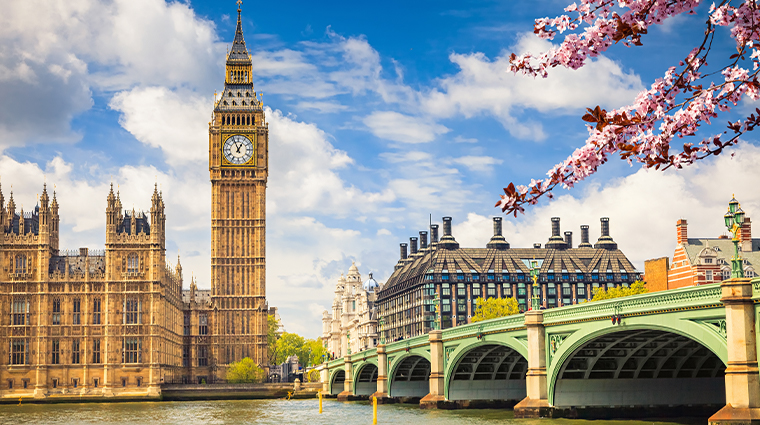

London, Photo Credit: iStock & sborisov
As one of the most popular destinations in the world, London wins over tourists with its bountiful art museums, thriving theater scene, royal history, eye-catching attractions and the list goes on and on.
When planning your escape to Western Europe’s largest city, keep these tips in mind.
What to pack for a trip to London
The most important thing to remember when packing for London is that the weather frequently changes. Visit in spring or autumn and you can easily experience the warming sun, biting wind and freezing rain in one single afternoon. So make sure you pack for all eventualities — bring thick socks, a warm jacket and a good umbrella, but also remember your sunscreen, hat and sunglasses.
Other essentials for an enjoyable London stay include sturdy shoes to walk around the city during the day (stow away some blister plasters, just in case), along with some smarter clothes for the evening, especially if you’re planning to visit a nightclub or take in a West End show.
You also shouldn’t forget to pack a plug adapter, a large amount of currency — it’s a very expensive city — and even a dictionary of local slang. It can be surprising how much can be lost in translation between American and British English.
Once you’re in the country, pick up a central London street map (with an Underground map on the reverse) to help you navigate the winding streets, plus an Oyster Card for when you tire of walking and want to hop on the bus, Tube or tram.
Languages spoken in London
As you would probably expect, the vast majority of Londoners speak English as a first language — even if it doesn’t always sound like it — and if you stick to the mother tongue, you will be understood pretty much everywhere you venture.
However, as a long-established multicultural capital, London also boasts an extraordinary range of other world languages spoken within its borders — more than 300 in fact.
It’s hardly a surprise to discover Mandarin and Cantonese widely spoken throughout the city’s Chinatown, and other long-established communities that speak non-English languages are becoming a normal part of life, from Bangladeshi in Bethnal Green to Yiddish in Stamford Hill.
But the fact is that people of different backgrounds, with varying languages, live and work right across the city, so don’t be surprised to hear restaurant staff, officials or people on the street speaking just about anything from Polish to Arabic to Urdu.
Should visitors rent a car in London?
The short answer is: no, absolutely not.
You might think that because London is so sprawling, driving would be a good way to get around, as it in some of the major U.S. cities. But you’d be wrong, because while the city is enormous, the majority of its top hotels and attractions are centrally located.
The only reason to consider renting a car in London would be for trips out of the city. But even then, nine times out of 10, we’d recommend taking the train.
Tipping etiquette in London
There’s no hard-and-fast rule about tipping in London (or in the U.K. as a whole), which means that this can be quite a confusing issue for visitors to the city.
When eating in a restaurant, it is not uncommon for a 12.5 percent service charge to be automatically added to your bill — and even if it isn’t, then a tip of around 10 percent is probably expected.
If you are staying in a hotel, you should keep two or three pound coins handy for tipping the porter, and factor around the same amount for each day housekeeping cleans your room.
And when it comes to taxis, a good rule of thumb is to round the fare up to the nearest pound, then add a couple of extra on top.
One place where you do not generally tip is in pubs or bars. You will usually have to go up to the bar to order drinks, so this obviously does not incur a service charge, but even if you also order food, there is no expectation to tip.
Although there are various situations in which tipping is expected, not tipping doesn’t provoke anywhere near the level of ire that it does in the United States. So people who forget to tip (or choose not to) won’t be refused service or treated rudely on future visits.
The best time to visit London
It’s always a good time to visit London. In fact, the city’s cultural calendar is so jam-packed that whatever your passion — be it music, art, food, fashion or nature — you’re guaranteed to find suitable attractions any time of year.
Spring offers beautifully blooming Royal Parks and countless charity events, summer boasts world-renowned cultural and music festivals, fall serves up top sporting events and the rather unusual Guy Fawkes Night and winter means ice rinks and Germanic Christmas markets.
Plus, the vast majority of the big tourist highlights are open year-round, regardless of the weather.
